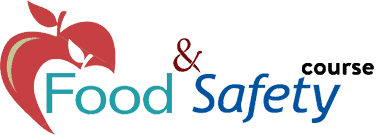Learning food safety is not just the responsibility of food establishments and food service workers. Everyone who handles food and cooks it for themselves or for other people should have basic knowledge of the concepts and techniques for Food Safety Training in Hamilton. There are many basic and advanced courses available all over Hamilton, but not all of them offer high quality training and certification like us at Hamilton First Aid.
If you are interested in learning about food safety and sanitation, head on over to the Hamilton First Aid website and sign up using the form. The form is interactive – meaning you can fill it up online; no need for downloads! You may also sign up or send in queries through e-mail, over the telephone, or in person.
A little peek into foodborne illness, food safety, and food sanitation
Foodborne illness is a concern of all local health authorities in Canada – Hamilton included. FBIs are typically called foodborne infections or food poisoning – caused by eating contaminated food. Food becomes contaminated when it contains bacteria and chemicals. Ingesting this kind of food gives rise to symptoms such as nausea and diarrhea, whose severity depends on the pathogen found on the food. Different foodborne illnesses have more or less the same signs and symptoms – all typically self-limiting (resolving in a few days to a week).
Food safety is a concept that battles foodborne illness. Safe food handling ensures that the food product sold or served (either with or without charge) can be consumed without spreading dangerous pathogens and chemicals. The handling process starts from the moment raw produce and meat is bought, shipped to the facility, prepared, packaged, and sold to consumers. In restaurants, dishwashing is included in the process.
What students learn during Food Safety Training in Hamilton
A food safety training program at Hamilton First Aid is focused on food safety and sanitation. We introduce our students to the basics of microbiology, prevention and management of foodborne illness, personal health and hygiene – in the workplace and at home, and general housekeeping of the facility or home. There are many other concepts and techniques, but these are the core topics involved in our curriculum.
Students have two kinds of training available – classroom-type or self-study. In a classroom type course, students enroll in a one-day eight-hour training program, completed in eight hours – exclusive of the certification exam. With self-study, students are instructed to buy our workbook, study at their own pace, and sign up for the certification exam at a specific schedule.
There are two levels of training as well. Level one is a basic introductory class to food safety. While level two is an advanced class for level one credential holders and management staff of food facilities. The advanced level is focused on management and is less skill-oriented than the first level of food safety training.
Food Safety Training Credentials are valid for five years. Technically, certificates do not expire. However, to keep them valid, food service workers need to take the certification exam again to become re-certified.
